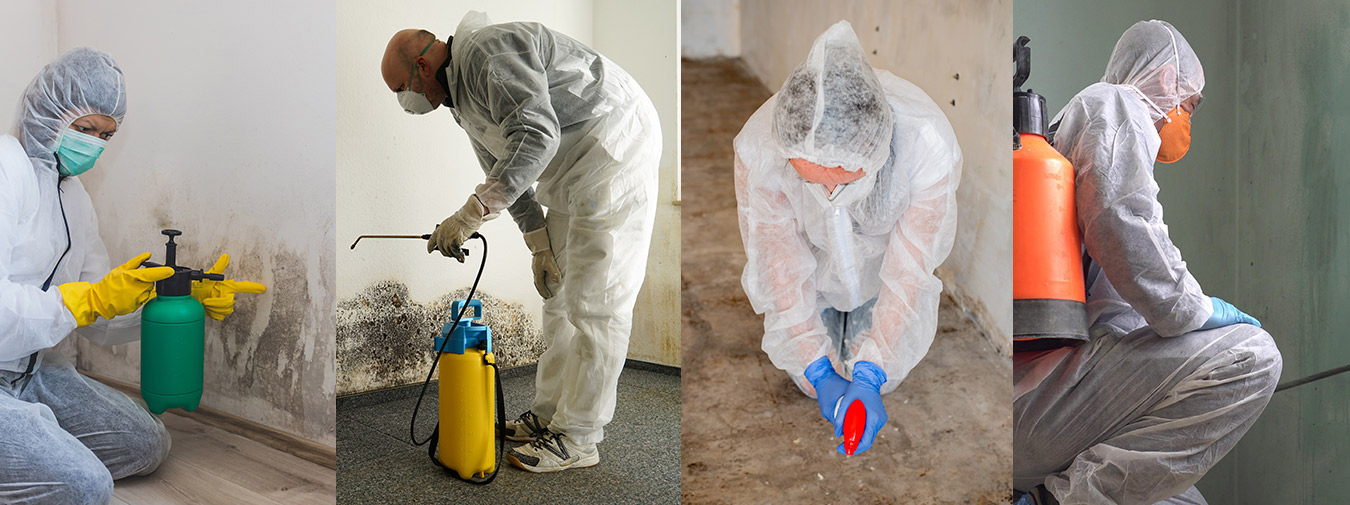Can Mold Hurt Pets?
As pet owners in Florida, we cherish our furry companions as integral members of our families. However, there’s a silent threat lurking in many homes across the state that can pose serious risks to our beloved pets: mold. While mold can be harmful to humans, it can be especially dangerous to our four-legged friends. In this blog post, we’ll explore the dangers that mold can pose to pets and provide tips on how to keep your home safe for both you and your furry companions.

Protecting Your Furry Friends: Understanding the Dangers of Mold for Pets in Florida Homes
Mold thrives in warm, humid environments, making Florida’s climate an ideal breeding ground. From hidden corners to damp basements, mold can hide in various areas of our homes, often unnoticed until it becomes a visible problem. When pets are exposed to mold spores, whether through ingestion, inhalation, or skin contact, it can lead to a range of health issues.
Respiratory problems are among the most common health concerns for pets exposed to mold. Just like humans, pets can develop allergies and respiratory conditions when exposed to mold spores in the air. Symptoms may include coughing, sneezing, wheezing, nasal discharge, and difficulty breathing. In severe cases, mold exposure can complicate existing respiratory conditions or lead to more serious issues like pneumonia.
Mold can also have adverse effects on a pet’s skin and coat. Contact with mold spores can cause irritation, itching, redness, and inflammation of the skin, leading to discomfort and potential secondary infections. Pets may exhibit excessive scratching, licking, or chewing on affected areas, which can further exacerbate the problem.
Ingestion of mold-contaminated food or water can pose additional risks to pets. Mold toxins, known as mycotoxins, can contaminate food and water sources, leading to gastrointestinal issues such as vomiting, diarrhea, and loss of appetite. Ingesting large quantities of mold or mycotoxins can even result in more severe symptoms, including neurological problems, liver damage, and even death in extreme cases.
How To Keep Pets Safe From Mold Exposure
Protecting our pets from mold exposure requires diligence and proactive measures. Here are some tips to help keep your home safe for your furry friends:
- Keep your home clean and dry: Regularly clean and disinfect areas prone to mold growth, such as bathrooms, kitchens, and basements. Ensure proper ventilation in these areas to reduce humidity levels and prevent mold formation.
- Check for leaks and moisture: Inspect your home for any signs of water leaks or moisture buildup, as these can create ideal conditions for mold growth. Promptly repair any leaks and address moisture issues to prevent mold from thriving.
- Monitor your pet’s behavior: Pay attention to any changes in your pet’s behavior or health that may indicate mold exposure. If you notice symptoms such as coughing, sneezing, or skin irritation, consult your veterinarian promptly.
- Choose pet-safe cleaning products: When cleaning your home, opt for pet-safe cleaning products to minimize the risk of exposing your furry friends to harmful chemicals or toxins.
- Consult a professional: If you suspect mold growth in your home, seek the assistance of a professional mold remediation company to assess the situation and safely remove any mold contamination.
By taking these proactive steps, you can help protect your beloved pets from the dangers of mold exposure and ensure a safe and healthy environment for your entire family.
TCB EnviroCorp for Florida Mold Removal
Remember, when it comes to mold prevention, vigilance is key. Please call TCB EnviroCorp if you suspect that your four-legged companion is being affected by mold! The professionals at TCB EnviroCorp provide reliable mold testing services, along with remediation solutions for homes dealing with water damage. We’re here to help you, your family, and your pets enjoy cleaner, healthier indoor air. Book a mold inspection or air quality test today!






